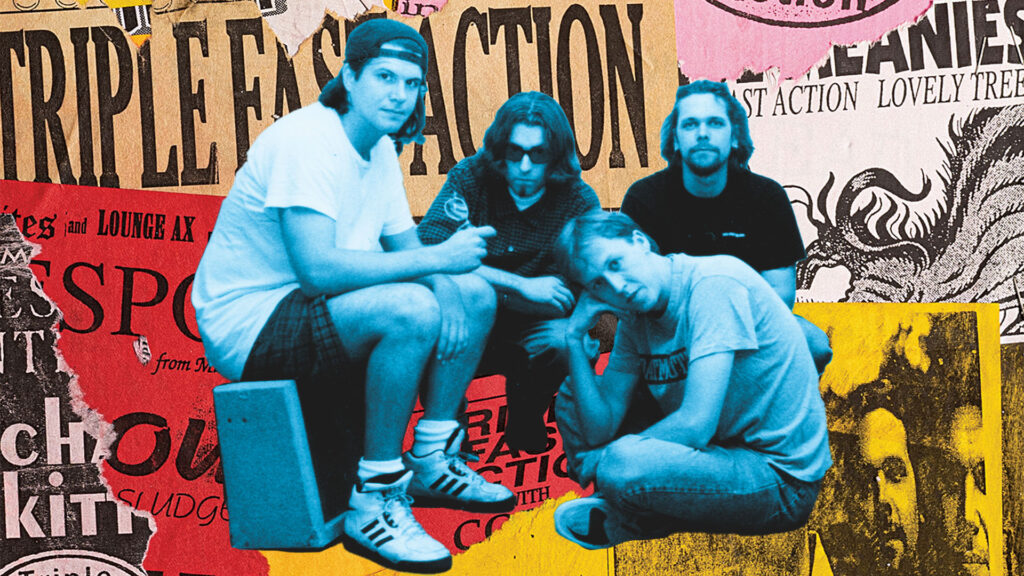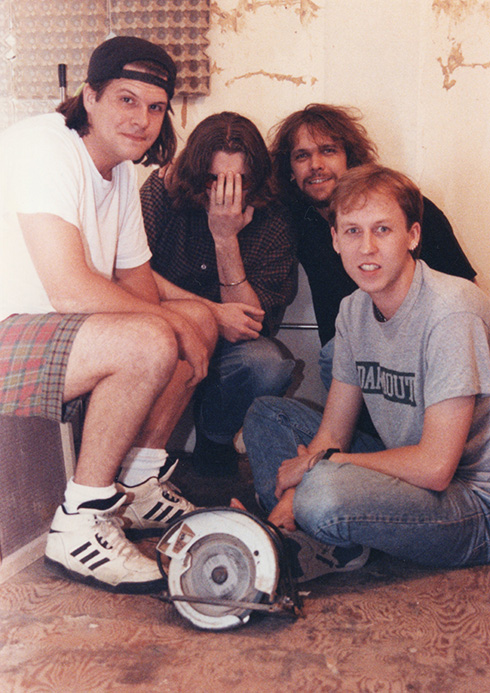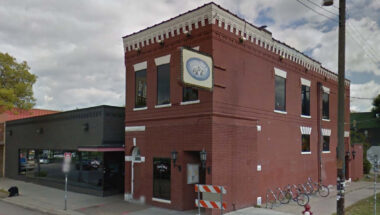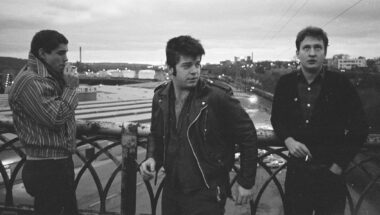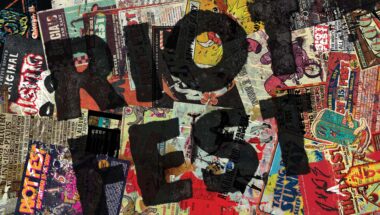At this point, Chicago’s early-90s alternative scene has taken on a near-mythological status. The rise of bands like Smashing Pumpkins, Veruca Salt and Smoking Popes are an essential part of the city’s musical history.
The story of Triple Fast Action is just as important.
They were a “Chicago band” through and through, playing their first gig at The Cubby Bear in 1991 and calling it a day after a 1998 show at Metro. Combining loud guitars with clever pop sensibilities, it was a no-brainer when they got caught up in the major label-feeding frenzy that descended on the city. Tourmate Art Alexakis of Everclear called them “the best un-kept secret of the 1990s.” During their whirlwind career, TFA toured hard, signed with Capitol Records, released the classic Broadcaster in 1996 and followed it up with Cattlemen Don’t just one year later.
But if you weren’t around during the band’s relatively brief run, there’s a good chance you barely know Triple Fast Action. Get ready for a proper re-introduction.
On April 21, Triple Fast Action will release a self-titled collection of rare, unreleased and live recordings that offers something special for fans old and new. The 37 tracks cover a ton of ground, but their self-recorded Broadcaster-era demos are the centerpiece here. Remixed by John Agnello (Dinosaur Jr., Kurt Vile, Waxahatchee) from the original ½” tapes, these songs sound like cheap beer and cramped rock clubs. The album will be available for preorder on Friday, March 3rd.
Ahead of the collection’s release, we caught up with Triple Fast Action drummer and co-founder Brian St. Clair about revisiting old material, the importance of local radio and the “amazing shit hole” that was their Lakeview rehearsal space.
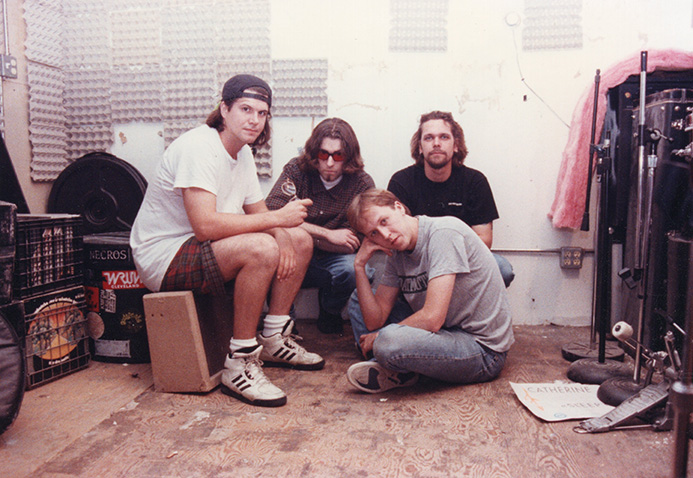
Riot Fest: This collection captures the band during the amazingly prolific period while you were writing songs for the album that eventually became Broadcaster. Did you have a feeling you were onto something special?
Brian St. Clair: Nah, just having fun being loud in the practice space.
RF: Even hardcore fans probably haven’t heard some of these tracks. Did you listen to any of the unreleased material and think, “Oof, that should’ve been on the album?”
BSC: It’s a good problem to have, too many songs! But with that, you have to choose. In most cases, it’s “what are the best songs?” There are songs that came super close but, you don’t want too many of the same. Too many rockers? Too many mellow ones? You gotta choose. I wish “Kickin’ Up A Rattle”, “Tag Along”, “Chlorina”, or “Small Amount” would have seen their day. They finally will, on this release.
RF: What made John Agnello (Dinosaur Jr., Kurt Vile, Waxahatchee) the right collaborator for this project?
BSC: John is still a great friend, we see each other from time to time. He has made a ton of great albums and has worked with the best. He mixed our debut album, Broadcaster, and produced/mixed our second album, Cattlemen Don’t. He was the obvious choice for this release.
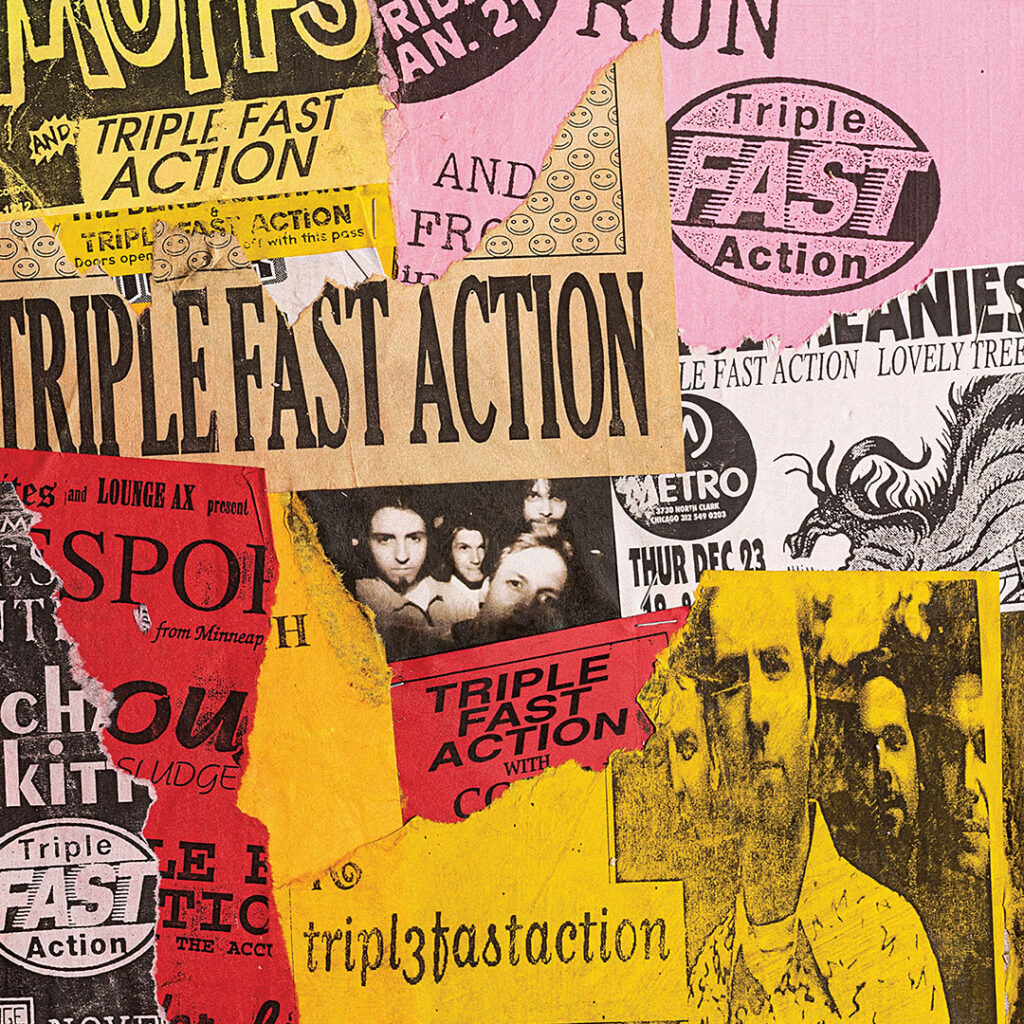
RF: A lot (maybe too much?) has been written about Chicago’s music scene in the early/mid-90s. What do most of those retrospectives miss that people should know about?
BSC: Well, I haven’t read them all. But back when we were around, all the bands were friends. We would go to each other’s shows, buy each other’s shirts, tour together, and sometimes play in each other’s bands. Mike Zelenko of Material Issue came out with us on one tour to just hang out and get out of the city. After Ronnie left the band, we had a revolving door of our best friends sit in with us on guitar; Blake Smith (Fig Dish), Alex Acevedo (Muchacha), Sean Rice (Made To Fade), Scott Lucas (Local H), Jerome Brown (Catherine), Louise and Nina (Veruca Salt) and John San Juan (Hushdrops) would occasionally sing back-ups. It was one big family, it was a blast.
RF: There are so many references to the city scattered throughout these lyrics. How big of an influence was Chicago on Triple Fast Action’s writing?
BSC: Huge! These songs couldn’t have been written in any other city. Leaving Thurston’s, Metro, or Liar’s Club after an all-nighter inspired a few tunes… Our practice space used to be where Smashing Pumpkins rehearsed before they made it. It was an amazing shit hole in the back of a parking garage near Reckless Records on Broadway. It was freezing in the winter and hot as hell in the summer. It was Chicago.
RF: If you could travel back in time and spend Saturday night at a Chicago venue that isn’t with us anymore, where would you go? Who’s on the bill?
BSC: Thurston’s, definitely. Hushdrops, Fig Dish, and Loud Lucy would be playing. Then we’d all stay out till the sun came up, Wes and I would have to go straight to work at Wax Trax Records, and Kevin would have to go to work at 99th Floor. I think that actually happened in real life…
RF: The compilation includes covers of great songs by Sparklehorse, The Beach Boys and, most surprisingly, Electric Light Orchestra. What were you listening to during this period?
BSC: All of the above, along with Big Star, Fleetwood Mac, Jackson Browne, The Frogs, The Muffs, and so many more.
RF: The live tracks recorded at Q101 are like a cherry on top. (They get a nice shout out on “Aerosmith,” too!) What did that station mean to you?
BSC: We just wanted them to play our songs. The local music shows on Q101 gave us way more love than the station itself. James VanOsdol and Chris Payne were our biggest supporters on the radio. Keep in mind, there weren’t a lot of options back then… Q101, WXRT, WNUR, dial-up internet!
RF: Any words of wisdom for artists in Chicago right now?
BSC: No. Seems to me they are doing just fine! Chicago has always had a great scene, no matter what decade you are talking about. With bands like Horsegirl and Dehd making waves, it’s easy to see why young talented musicians still call it home. It has always been an important place to discover new and old music.
Triple Fast Action comes out on April 21
Preorder the album on Bandcamp beginning Friday, March 3.
